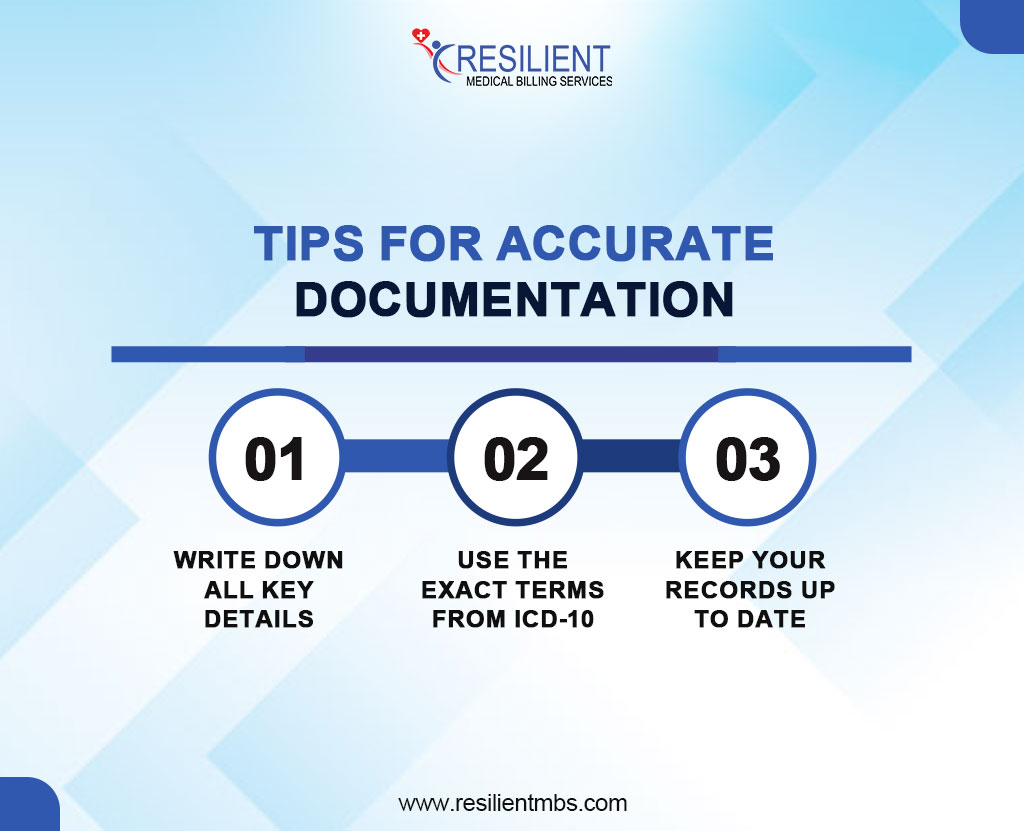ICD-10 Code F33.1 is the medical code for Major Depressive Disorder, recurrent, moderate. It’s part of the International Classification of Diseases, 10th Revision (ICD-10), A system used around the world so healthcare providers can describe, diagnose, and record health conditions in the same way. This shared “language” helps ensure patients get the right treatment, no matter where they are.
Depression is more common than many people realize. In the United States, about 8.4% of adults have a major depressive episode each year. Globally, over 160 million people live with depression.
Accurate coding matters because:
- Better care – The right code helps doctors choose treatments that fit a patient’s needs.
- Smooth billing – Mistakes in coding cause 30–40% of claim denials and contribute to billions in lost healthcare dollars each year.
- Fewer delays – Nearly 80% of medical bills have errors, but correct coding can reduce denials by up to 90%.
In mental health practices, fixing coding errors can increase yearly revenue by 15–20%, allowing providers to serve more people.
In short, ICD-10 Code F33.1 is more than a number. It’s a key to accurate diagnosis, timely treatment, and keeping the healthcare system running smoothly for patients and providers alike.
What is ICD-10 Code F33.1?
The diagnosis code F33.1 is used to represent Major Depressive Disorder (MDD), recurrent episode, moderate severity. It applies when a patient has experienced two or more episodes of depression, with the current episode being moderate in intensity. This classification helps clinicians distinguish between mild, moderate, and severe forms of recurrent depression, which directly influences the treatment strategy.
Under ICD-10 F33.1, the condition falls within the broader category F30–F39: Mood [affective] disorders, specifically within F33: Major depressive disorder, recurrent.
This categorization links F33.1 to other depression ICD-10 codes, such as:
F33.0 – Major depressive disorder, recurrent, mild
F33.2 – Major depressive disorder, recurrent, severe without psychotic features
Understanding Major Depressive Disorder (Recurrent, Moderate)
Understanding Major Depression ICD-10
In the ICD-10 medical coding system, major depressive disorder (MDD) is listed under codes F32–F33. The code F33.1 means Major Depressive Disorder, Recurrent, Moderate. This tells doctors and insurance companies that the person has had more than one episode of depression and that the current episode is moderate in severity.
Using the right code helps make sure patients get the right treatment and that insurance claims are processed correctly.
Single Episode vs. Recurrent Depression
F32: A single episode — the person is experiencing depression for the first time.
F33: Depression Recurrent ICD 10— there have been at least two separate episodes with a break in between.
Recurrent depression often needs ongoing care, like regular check-ups or long-term treatment, to lower the risk of it coming back.
What “Moderate” Depression Means
Moderate depression is more serious than mild depression but not as disabling as severe depression. It can make work, school, or daily life difficult, but the person may still be able to manage some activities.
Common symptoms include a persistent low mood, loss of interest in things once enjoyed, tiredness, and changes in sleep or appetite. Treatment often combines therapy and medication.
Major Depressive Disorder Criteria (DSM-5)
Doctors often use the DSM-5 manual to diagnose depression.
- A diagnosis requires at least five symptoms lasting for two weeks or more.
- One symptom must be either a low mood or loss of interest in usual activities.
Other symptoms may include weight changes, sleep problems, slowed or restless movements, fatigue, guilt, trouble focusing, or thoughts of death or suicide. The symptoms must cause real problems in daily life and not be due to drugs, alcohol, or another medical condition.
Why Accurate Coding for ICD-10 Code F33.1 Matters
ICD-10 Code F33.1 is used to describe Major Depressive Disorder, recurrent, moderate. To use this code correctly, healthcare providers must record clear and complete information in the patient’s file.
Why It’s Important for Payments
Insurance companies depend on correct ICD-10 coding to approve claims and cover treatments. If the code is wrong or incomplete, it can cost both the patient and the provider money.
Tips for Accurate Documentation

- Write down all key details: Include when symptoms started, how severe they are, and if they have come back.
- Use the exact terms from ICD-10 — This helps avoid confusion during audits or reviews.
- Keep records up to date — Any changes in diagnosis or treatment should be added right away.
Mistakes to Avoid
- Using F33.1 without confirming the depression is “recurrent.”
- Leaving out how severe the symptoms are.
- Not including enough evidence in the medical record.
- Mistakes like these can cause claim rejections, payment delays, and compliance problems.
How Accurate Coding Helps in Treatment
Getting the code right is not just paperwork; it helps in:
- Creating the right treatment plan based on the patient’s condition.
- Tracking progress to see if treatment is working.
- Coordinating care between psychiatrists, psychologists, therapists, and other healthcare providers.
Wrap-Up!
Using ICD-10 Code F33.1 correctly is important for providing the best mental health care. This code helps link what providers see in a patient’s condition to the right treatment plan and makes insurance processing smoother. When healthcare providers follow good coding and documentation practices, they can make diagnoses more accurate, improve patient care, and speed up payment processes.
If your healthcare organization needs help with mental health coding, documentation, or billing, Resilient MBS LLC can guide you. We make sure your work stays compliant, your payments are processed efficiently, and your patients get the care they need.
FAQS
What is ICD-10 Code F33.1?
It’s a medical code doctors use for Major Depressive Disorder, Recurrent, Moderate. This helps with diagnosis, treatment, and insurance paperwork.
How is ICD-10 F33.1 different from other depression codes?
This code is only for depression that comes back (recurrent) and is moderate in severity—not mild, severe, or a first episode.
What are the DSM-5 criteria for F33.1?
You must have symptoms like sadness, loss of interest, tiredness, or changes in sleep or appetite for at least two weeks, and these symptoms must affect your daily life.
Why is correct coding important?
It makes sure patients get the right care, doctors keep accurate records, and insurance claims go through smoothly.
Does ICD-10 F33.1 affect insurance coverage?
Yes. Using the correct code helps avoid delays or denials when paying for mental health treatment.










